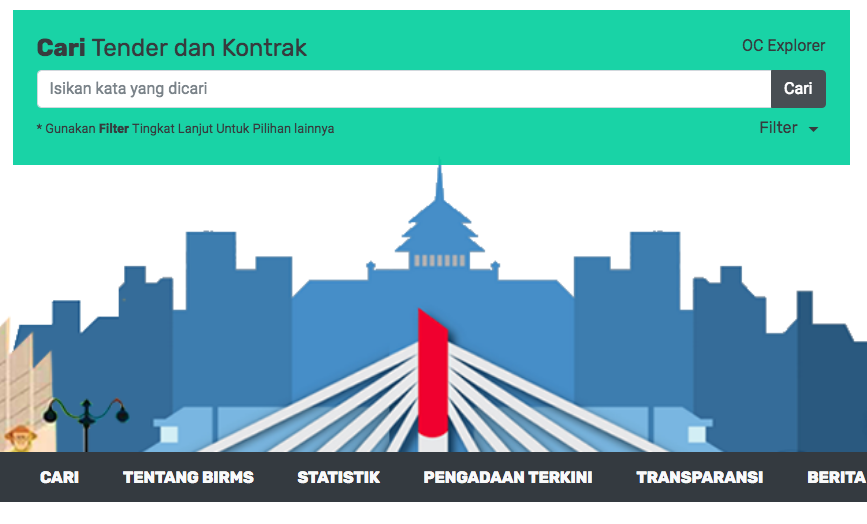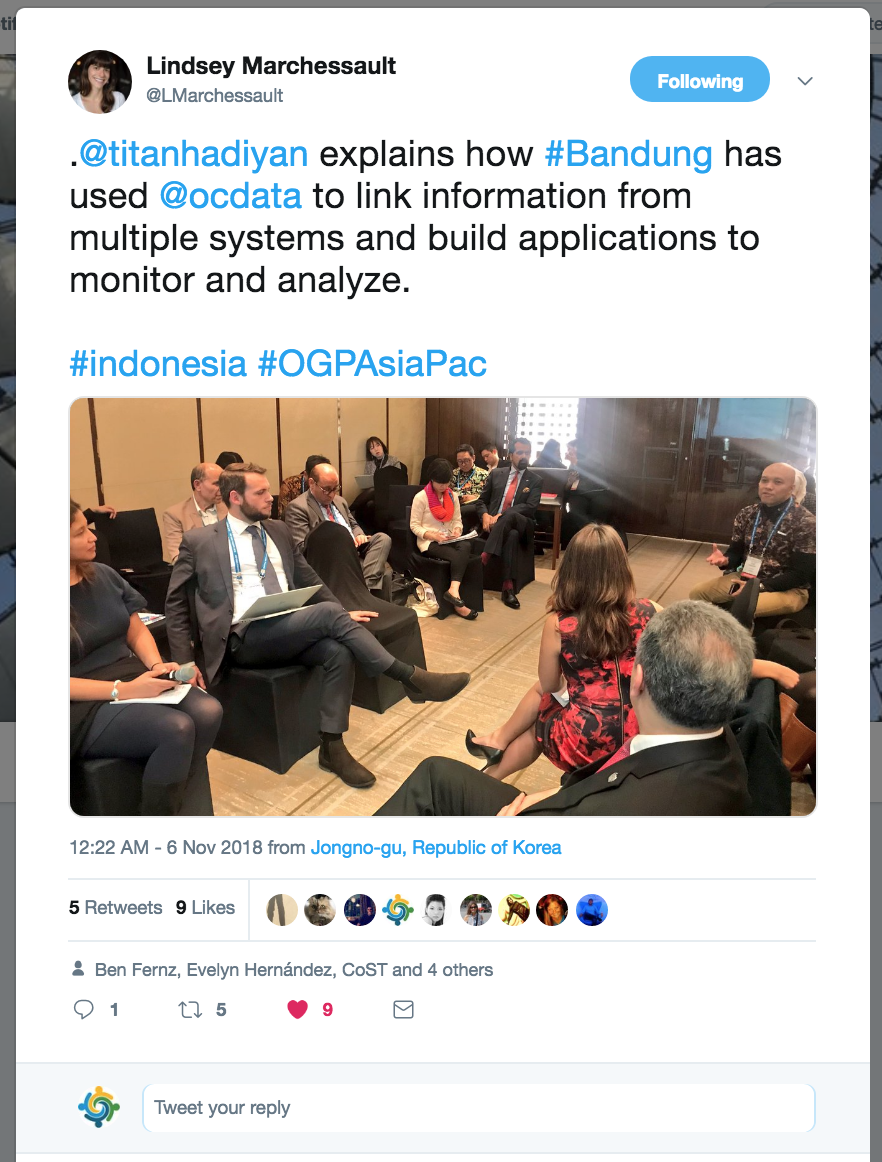Developer-to-Developer Mentorship in Bandung, Indonesia: A Blueprint for Open Contracting Success
Since April of this year, DG has been collaborating with the World Bank and a developer consultant from the Bandung City Government to publish the Government’s procurement data in Open Contracting Data Standard (OCDS) format. This partnership has led to the launch of an exciting new procurement data portal for Bandung, with a functioning OCDS API.

Screenshot of the new Bandung City Open Contracting Explorer
While much of the credit for this great work belongs to our partners, DG’s involvement sped up the process while raising the overall quality and sustainability of the resulting product; and we believe this is a model for driving open contracting success in the coming years.
DG typically develops technology tools that build on OCDS, convert data to OCDS and visualizing it in our analytics tools, or conducts in-depth assessments of open contracting readiness. However, our role was a bit different in this instance: instead of technology builder or implementer, it was that of mentor. We were asked to bring our experience working with OCDS to guide and provide help to another developer to implement the standard himself.
What was our challenge?
One of the great open contracting challenges is this: many developers are unfamiliar with the intricacies of building tools around a standard. In the case of OCDS, this is less a matter of technical capacity than it is of understanding how to execute certain concepts (e.g. releases and records), selecting the right technologies for the implementation, and having the resources and time to dedicate to implementation. While we view OCDS as a fairly accessible data standard (partially by design and partially due to the concerted effort of the Open Contracting Partnership and OCDS Help Desk), our experience working with developers from Latin America to Africa to Asia suggests that a bit of coaching and collaboration can go a long way.
Another challenge is that governments, in many contexts, are hesitant to share database access with third party developers. Although OCDS is built to publish procurement data in an open format, privacy and security concerns about database or tool access remain common. While these concerns can sometimes be mitigated through signing non-disclosure agreements and agreeing on specific terms of access, they can pose challenges to service providers completing work to get procurement data into OCDS.

Titan Hadiyan, the developer of the Bandung platform, tells the tale at OGP Asia
So how did DG help Bandung City become one of the first cities to publish planning, tender, and award data in OCDS?
First, we set up truly useful, open lines of communication. Using Github to share and review code, and Gitter to communicate, we enabled traceable, searchable interaction so that no technical conversation was “lost in translation.” We instituted weekly, and sometimes twice-weekly, calls between developers, to make sure the project stayed on track. Because certain developer operations needed to be repeated, we created easily-accessible videos to ensure that our partner could easily access our instructions. These activities helped us build strong relationships and rapport with the developer consultant, while keeping our World Bank colleagues updated on our progress.
Second, we developed sample code that the developer consultant could extend to fit different circumstances, as needed. He was able to provide snippets of data and examples of data fields from the right databases while adhering to data sharing and privacy limitations, which was just enough information for us to be able to provide guidance on how best to proceed. Although full database access would have been far more efficient, we were able to “make it work” and use a limited amount of information to help build substantial and effective development processes.
Third, we provided a few tools to streamline the development process and make everyone’s job just a bit easier. For example, although we couldn’t access the database itself, we were able to use a validator to identify existing errors in the data. By using the tool, we found a handful of systematic errors that our partner was able to address in bundles, rather than finding and solving them one-by-one.
And now?
As of November 2018, Bandung City has published around 40,000 procurements from the past 3 years, and we’re glad to have been a part of the process. Looking forward, we see opportunities for mentorship – organizations like DG using existing knowledge and experience to help local developers complete processes – as a viable way to boost process effectiveness. Instead of leaving it up to developers to discern the ins and outs of standards like OCDS as they go, we can share knowledge to ease an often-steep learning curve, providing guidance along the way.
Share This Post
Related from our library

Introducing The HackCorruption Civic Tech Tools Repository
Introducing the Civic Tech Tools Repository: an open-source hub of digital solutions to fight corruption. Designed for growth through GitHub contributions, it brings together tools, code, and resources across six key areas for HackCorruption teams and beyond.

Building a Sustainable Cashew Sector in West Africa Through Data and Collaboration
Cashew-IN project came to an end in August 2024 after four years of working with government agencies, producers, traders, processors, and development partners in the five implementing countries to co-create an online tool aimed to inform, support, promote, and strengthen Africa’s cashew industry. This blog outlines some of the key project highlights, including some of the challenges we faced, lessons learned, success stories, and identified opportunities for a more competitive cashew sector in West Africa.

Digital Transformation for Public Value: Development Gateway’s Insights from Agriculture & Open Contracting
In today’s fast-evolving world, governments and public organizations are under more pressure than ever before to deliver efficient, transparent services that align with public expectations. In this blog, we delve into the key concepts behind digital transformation and how it can enhance public value by promoting transparency, informing policy, and supporting evidence-based decision-making.